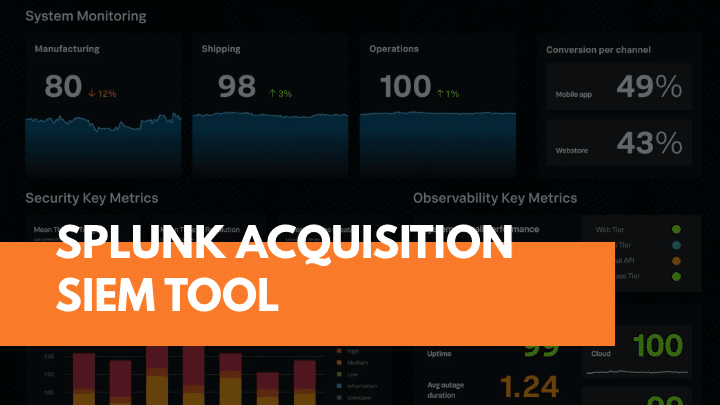Cisco has acquired Splunk’s Security Information and Event Management (SIEM) tool for a whopping $28 billion. This acquisition marks a pivotal moment in the cybersecurity industry, as it brings together two giants to enhance threat detection, incident response, and overall security posture. Let’s break it down.
First off, what’s an SIEM? As a critical part of modern cybersecurity, it’s a software solution that combines security information management and security event management to provide insights into an organization’s security environment.
SIEM tools collect and analyze data from various sources, such as logs, network traffic, and endpoint devices. They help organizations detect and respond to security incidents, track compliance with security policies, and gain valuable insights into their security posture.
Splunk, a well-known name in data analytics and security, has developed a highly regarded SIEM solution that offers a range of features, including real-time threat detection, advanced analytics, and customizable dashboards. It’s known for its ability to ingest and analyze vast amounts of data from diverse sources, making it a valuable tool for organizations of all sizes.
Here’s why Cisco’s acquisition is a big deal:
Stronger Cisco Security Offerings: Cisco is already a big player in the cybersecurity industry, with a wide range of products and services. Adding Splunk’s SIEM tool enhances Cisco’s threat detection and response capabilities, enabling customers to better protect their networks and data.
Unified Security Ecosystem: Integrating Splunk’s SIEM tool with Cisco’s existing security products creates a more harmonious and cohesive security ecosystem. This enables seamless information sharing between different security tools, improving overall threat visibility and response times.
Enhanced Analytics and Insights: Splunk’s data analytics and visualization expertise contribute to more advanced insights for security teams, leading to faster identification of threats and a more effective response to security incidents.
Scalability and Flexibility: Cisco’s global reach and infrastructure will provide Splunk’s SIEM tool with greater scalability and accessibility for organizations worldwide.
There are several implications for the cybersecurity landscape. This acquisition represents a market trend of consolidation in the cybersecurity industry, something that Port53 has been advocating for years. Larger companies are acquiring specialized cybersecurity firms to provide end-to-end solutions, reducing the need for organizations to manage multiple vendors.
Organizations will benefit from more advanced threat detection capabilities, as the integration of Cisco and Splunk technologies will result in enhanced algorithms and analytics. With a unified security ecosystem, incident response times are expected to improve, allowing organizations to mitigate security threats more effectively. The acquisition will pressure other cybersecurity vendors to innovate and expand their offerings to remain competitive in the market.
Cisco’s acquisition of Splunk’s SIEM tool is more than just a business deal; it has the potential to reshape the cybersecurity landscape. Organizations can expect more robust, integrated, and efficient security solutions by bringing together Cisco’s networking and cybersecurity expertise with Splunk’s data analytics and SIEM capabilities. This highlights the importance of staying at the forefront of cybersecurity technology and the value of unified security ecosystems in the face of ever-evolving cyber threats. As the integration of these technologies progresses, organizations will have a powerful tool at their disposal to defend against an increasingly sophisticated threat landscape.
Check out our Customer Platform


Dangers of Password Sharing
As we move towards MFA, biometrics, passwordless, and modern authentication don’t lose sight of the passwords that you do use. DIve into the dangers of password sharing and how to keep your passwords safe.


Recent Comments